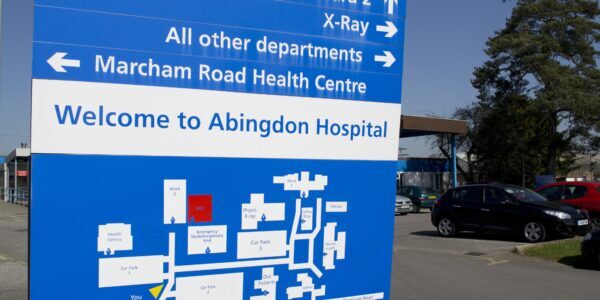Congratulations to the Community Rehabilitation Service which has been recognised by the Community Hospitals Association (CHA) for their work in establishing a seven-day service during COVID-19 as part of its Innovation and Best Practice Awards 2022. The award also reflects a new way of working that was developed across the community hospitals, with a strengthening of leadership at every level
To meet the needs of increased numbers and complexity of patients during the pandemic, several things happened. The senior leadership team in Community Hospitals changed their working patterns, stepping up to provide clinical leadership and management support up from five to seven days.
In addition, the Matrons also initiated a new system whereby one Matron had operational responsibility (covering staffing, patient flow and system representation for example) for all community hospitals for a seven-day period leaving the other two matrons with all clinical responsibilities. Previously, each Matron had both responsibilities to manage each day.
The Allied Health Professionals (AHPs) also increased the offer of rehabilitation and discharge planning from five to seven days across the eight Community Hospital wards. This group includes the Physiotherapists, Occupational therapists, Speech and Language therapists, Dietitians and the Patient Flow Team. Another improvement was the introduction of a new system of managing our beds which improved the accuracy and timeliness for reporting.
Emma Leaver, Service Director for Community Services said: “This is an example of exceptional leadership. Even amid the pressures of the pandemic the Matrons took a step back and looked at how they could improve the service and it has been an amazing success. It has enabled each of Matrons to be the Clinical Leader they want to be. There is now much greater oversight of what the Community Rehabilitation Service can offer to the wider system because when acting as the Operational Matron they can now focus wholly on that.”
The three Matrons who instigated the new system were Dawn Roberts, Julie Beardmore and Mireia RuizSoley. Dawn Roberts spoke for them: “This has been such an exciting journey for all of us and we have all learnt so much and are very proud of what we have achieved. Now we have greater clarity on our bed numbers and staffing we can be much more decisive in what we can offer to the wider system which gives us a much clearer strategic role. We are looking forward to continuing improving our service and providing leadership to our staff so we can deliver the best care for our patients.”
For patients, the move to a seven-day service has meant they have benefited from more regular rehabilitation which has impacted the length of time they needed to stay in hospital. With the average stay for patients reduced from 25 days to 23 days on average, during the pandemic. Better sharing of patient data has also led to improvements in care, ensuring the right patient is in the right bed by reviewing complex referrals prior to admission and supporting clinical teams to ensure they have required resources.
The system has proved so successful that they have continued using it and have appointed an additional matron. The change has resulted in many major improvements for patients, staff and the service, as each Matron has a complete overview of the Community Hospital offering at any time including how many beds are available and staffing requirements. This is essential when working with partner organisations such as the Acute Trust and Social Care as there is a daily meeting to discuss the need for beds and services across Oxfordshire.
Both Matrons and staff have reported better levels of work satisfaction as they have an improved understanding of the wider service, and can see the positive impact on patients and families. Staff retention has improved and staff describe the “art of the possible” in respect to actions taken during the pandemic, and feel there is greater “camaraderie” between staff.
In making their decision the judges said: “This was a great example of leadership at its best from a group of Matrons who understood what was needed and had a can-do attitude.”
Published: 5 September 2022

